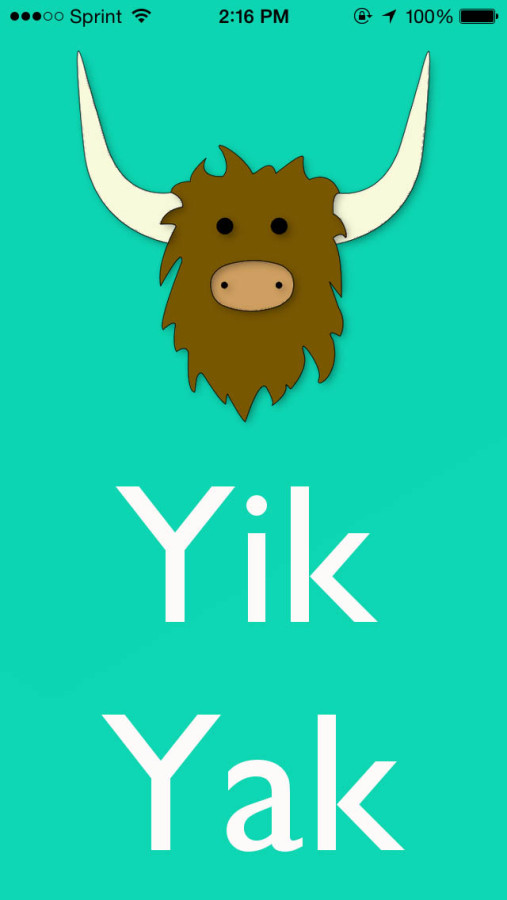
“I wake up and immediately read last night’s Yik Yaks like it’s the newspaper,” a Yik Yak user posted on the app.
Yik Yak, an anonymous Twitter-styled app, has gain popularity across college campuses in the United States. The app, released by 23-year-old Furman University graduates Brooks Buffington and Tyler Droll in late 2013, has managed to garner over 200,000 users. The goal was to create a social network that allows a free flow of communication.
“We wanted to enable people to be really connected with the people around you, even if you don’t know them. It’s like a virtual bulletin board, a hyper-local version of Twitter where people can use it to post information and everyone in the area can see it,” Buffington said in an International Business Times article.
The app is simple. Up to 500 users in a geographical location can post up to 200 words anonymously on a virtual bulletin board and other users can “up vote” “down vote” or reply to a yak. No pictures are allowed and if a post is “down voted” enough times by other users on the forum, the comment disappears.
“It has definalty become a craze around campus,” sophomore Chandler Helms said.
Senior Stephanie Gentile, who wrote an opinion piece for The Daily Campus about Yik Yak, uses the app to occupy time.
“When I am in class or walking from class it is something to do,” she said. “It is funny and keeps you in the know of what is going on around campus.”
The app, which is mostly popular on college campuses in the south and east according to Buffington, has gained popularity on SMU’s campus fairly fast.
“It is being talked about by everyone and I just downloaded it this week,” Gentile said. “I think it is interesting how word can spread so fast and that Yik Yak has become such a big deal.”
Buffington and Droll targeted the app toward college students, however middle and high school students have been using it as a bullying app. This has led the app’s creators to disabled use of the app at 85 percent of all middle schools and high schools across the U.S.
“I haven’t downloaded it yet because I have mixed feelings about it,” Helms said. ”Some things my friends have told me are really funny. And some things are offensive.”
Yaks subjects range from college commonalities like parking issues to jabs at sororities and fraternities.
“People’s feelings can get hurt,” Gentile said. “People can write anything they want and rumors will spread considering a lot of it is not even true.”
Helms, a fashion media and French major, doesn’t plan on downloading the app.
“I bet it will die down before summer with finals,” Helms said.
Yik Yak is just one of many anonymous sharing apps.
Others, such as Whisper, Secret and Confide provide a similar service.. Whisper and Secret function more as a My Life is Average or CollegiateACB — with backgrounds, font changes and other customizations.
Confide, targeted toward business professionals, allows users to send messages and once the message has been read it disappears, similar to Snapchat except users can’t save the message.
“The fact that it is anonymous means anyone can say anything,” Gentile said.. “Things will cross the line and feelings are probably getting hurt, but at the same time this is what makes the app so popular so fast.”









